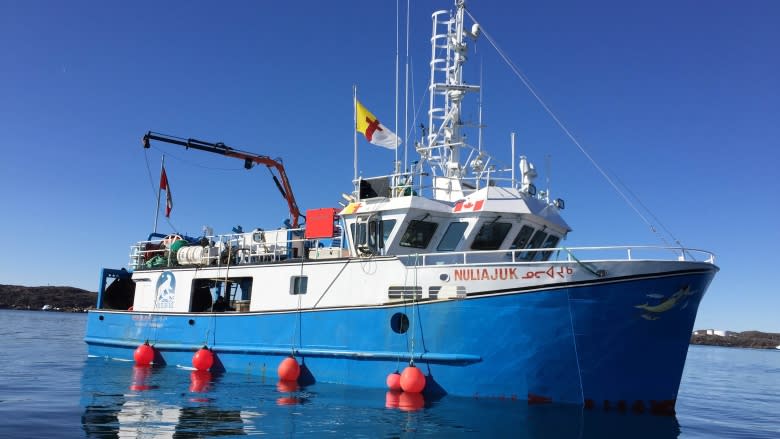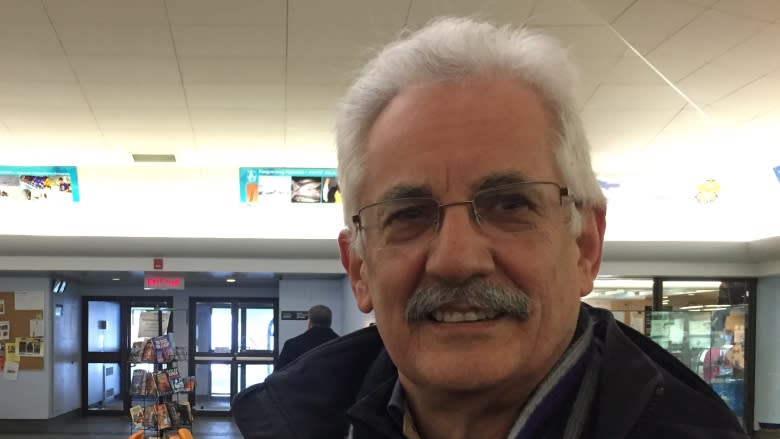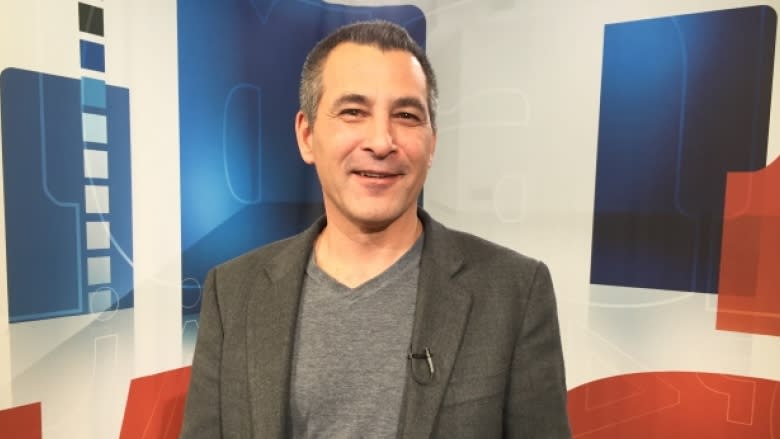Nunavut fisheries casting a net for federal infrastructure money
Nunavut fisheries say the Liberal budget is giving them renewed hope for much needed money and infrastructure to stimulate their growing industry.
The budget offered some good news and some bad news for the territory's fisheries including money for development, training and research although Inuit fisheries are still not included in some programs aimed at First Nations fisheries.
"Firstly the strengthening of the Northern Economic Development — that's good news from a Nunavut perspective," said Jerry Ward, chair of the Nunavut Offshore Allocation Holders Association, which represents Nunavut's offshore fishing industry.
The $40 million for the next two years, administered through the Canadian Northern Economic Development Agency will be beneficial for Nunavut, said Ward. He added that CanNor has supported fisheries development projects in Nunavut in the past as well as multi-year research related to fishing.
Nunavut wants more small craft harbours
As part of the $3.4 billion federal infrastructure investments, the budget sets aside $149 million for small craft harbours across the country.
So far, the only small craft harbour in the territory is the one in Pangnirtung, completed in 2013.
"The budget provided us that to be able to undertake about 85 capital construction projects — commercial fishing harbours," said Nunavut MP and fisheries minister Hunter Tootoo.
Tootoo said he is looking at the criteria for that funding to see where it can be used in Nunavut.
"We're not just going to go and say this is what we're sticking in your backyard. We'll be consulting with the territorial government."
Nunavut Premier Peter Taptuna said marine infrastructure money would make a huge difference in the territory where currently it can take up to 10 days for a ship to offload cargo.
"Transportation is lowering the overall cost of living," said Taptuna.
"Transportation is something that can generate its own revenue so it's ongoing, which benefits communities especially when there's proper facilities like marine facilities."
Ward said Nunavut fisheries have been asking for a port somewhere in the territory for a long time.
A port is being planned for the capital city of Iqaluit, and could be completed by 2020.
Ward said, for the industry, a port in Qikiqtarjuaq would make the most sense as it is close to the shrimp and turbot fishing grounds. He said the lower tide in Qikiqtarjuaq in comparison to some other locations in the region would also translate into savings in construction cost.
He said currently Nunavut fisheries have no choice but to offload in Greenland, if they are a smaller vessel, or Newfoundland, if they are a larger vessel.
Ward said it can take 10 to 12 days to steam from their 0A or 0B fishing grounds in Nunavut to Newfoundland and off-load cargo. That time would be reduced to only four days with a port in Qikiqtarjuaq. He said that's a significant factor for Nunavut fisheries who operate anywhere between five to eight months per year.
"When we have such a short fishing season it would be obviously much more fishing time and would be much more economically viable to offload in a facility in Nunavut," said Ward.
Ward added that off-loading, refuelling, and re-crewing in Nunavut would also generate more jobs.
Training Inuit fishers
The sector also hopes to take advantage of the $15 million over two years for the Aboriginal Skills and Employment Training Strategy.
"That's very positive for us," said Ward. "The program has been a major contributor to training Nunavut Inuit fishermen in particular through the Nunavut Fisheries and Marine Training Consortium (NFTC)."
Ward said since 2006-2007 the program has contributed up to 50 per cent of the total financing requirements for NFTC.
Nunavut fisheries are hoping to benefit from the $197.1 million over five years set for ocean and freshwater research as well.
"It's extremely important to Nunavut, when you consider that we've been left behind the rest of Canada historically from the point of view of research and science," said Ward.
Ward said in the last number of years the Department of Fisheries and Oceans has been a major contributor to the ongoing multi-species surveys in Nunavut, a practice that he hopes to see continued due to these new funds.
Left out of First Nations Fishing Enterprises
The budget allocated $33.1 million to Fisheries and Oceans Canada to extend the Atlantic and Pacific Integrated Commercial Fisheries Initiatives, to assist First Nations to access and strengthen their commercial fisheries. The programs do not include Inuit.
"We just didn't have the time to do the work necessary for the development of what the program would look like," said Tootoo.
"We've only been here for six months, those types of things don't just happen overnight, but it is something that I'm working on."
Ward said Nunavut fisheries were hoping to be included in the program but they will now focus on working with the minister and his staff to develop a program for Inuit fisheries in Nunavut.
"In the long term it may benefit us by developing a system developed for Nunavut specifically," said Ward.



